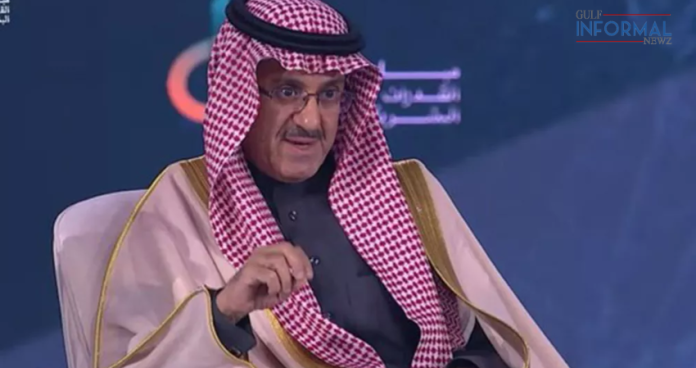The Ministry of Education and the Ministry of Foreign Affairs have launched a new educational visa program to attract foreign students and academics to Saudi Arabia to boost its educational and research sectors.
The launching ceremony was held in the presence of Minister of Education Yousef Al-Benyan on the sidelines of the two-day Human Capacity Initiative conference, which concluded in Riyadh on Thursday. The conference was held under the patronage of Crown Prince and Prime Minister Mohammed bin Salman, who is also chairman of the Human Capacity Development Program Committee.
The educational visa will be issued through the “Study in Saudi Arabia” platform for international students who wish to pursue their studies in the Saudi universities. The educational visa issuance service aims to facilitate procedures for students who wish to study in Saudi Arabia, and achieve integration between the Ministry of Education, the Ministry of Foreign Affairs, and related sectors.
The new educational visa service program would contribute to providing educational options for foreign students wishing to study in Saudi Arabia. It also enhances the Kingdom’s role as a global educational destination.
The platform enables international students to submit applications for admission to Saudi universities in an easier and simpler way. It provides short-term and long term academic, training and research programs, within a distinguished and modern educational environment.
The ‘Study in Saudi Arabia platform’ enhances academic and cultural cooperation, and the Kingdom’s commitment to developing the education sector and attracting talents and competencies in fulfillment of Saudi Vision 2030.
Addressing a dialogue session titled “Shedding light on education” at the Human Capability Initiative conference, Minister of Education Al-Benyan said that the collective global approach to developing human capabilities will enable confronting future challenges and developments in the education sector. “There is a global agenda for developing human capital which is consistent with the Kingdom’s Vision 2030, which has made the Kingdom keep an effective leadership spirit in enhancing and developing human capabilities,” he said while stressing the need to consider long-term education outcomes and evaluate the impact, the level of education and competencies to achieve goals and satisfy ambitions.
The minister noted that the public and private sector and human capital development are the key priorities for achieving progress. Regarding the ministry’s achievements, Al-Benyan said: “We have programs that began a few years ago, and we reached a better position in early education in 2019, where we reached 10 percent, and now we have reached 34 percent, and we seek to reach 90 percent by 2030. We must invest in our teachers to reach the best skills.”




